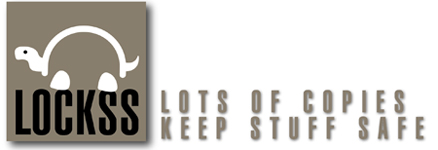Focus and Scope
Al-Albab is a peer-reviewed journal that offers a platform for scholars and researchers to exchange ideas and present research on a broad range of topics related to religious studies in both local and global contexts. The journal aims to disseminate original research while addressing contemporary issues within the field. Scholars from any country or region with an interest in religious studies and their manifestations in human life are encouraged to submit their articles and take advantage of this open-access platform. The journal places a strong emphasis on novelty and the relevance of current issues in the topics it publishes. Al-Albab welcomes submissions that adopt a multidisciplinary approach, including, but not limited to, Islamic studies, Catholic studies, Christian studies, Hindu studies, Buddhist studies, Jewish studies, local tradition studies, Chinese religion studies, and other relevant areas of religious studies.
Section Policies
Articles
Editors- Faizal Amin
- Zaenuddin Prasojo
Book Review
Editors- Faizal Amin
- Zaenuddin Prasojo
Peer Review Process
The Editor-in-Chief will assign the manuscript to the Managing Editor for further handling. The Managing Editor will request at least two scientists to review the research article manuscript. All manuscripts are subject to double-blind peer review, where both the reviewer's and author’s identities are concealed from each other, ensuring adherence to the academic standards. All papers undergo thorough peer review. We only publish articles that have received approval from qualified researchers with expertise in the relevant field, with a minimum of two reviewers per article. The Al-Albab upholds the standards of double-blind peer review while streamlining the process. Key characteristics of the peer review process for all research articles published in the journal are outlined below:
- The Al-Albab employs a two-stage process: After the technical check, your submission will undergo an initial review by the editorial team to assess its suitability for publication in the journal. If deemed suitable, it will then be assigned to one of the editors for the review and decision-making process.
- If your manuscript aligns with the scope and meets the criteria of the Al-Albab, your paper will be assigned to an Editor. The Editor will identify and contact two reviewers who are recognized experts in the field. Since peer review is a voluntary service, it may take some time, but please be assured that the Editor will regularly remind reviewers to ensure timely responses. During this stage, the status will be labeled as “Under Review.”
- Once the Editor has received the minimum number of expert reviews, the status will change to “Required Reviews Complete.”
- It is also possible that the Editor may determine that your manuscript does not meet the journal’s criteria or scope and should not be considered further. In such cases, the Editor will promptly inform you that the manuscript has been rejected and may recommend a more suitable journal.
Peer review of referred papers:
Editors of the Al-Albab will promptly decide whether to accept, reject, or request revisions for referred papers based on the reviews and editorial insights from supporting journals. Editors also have the option to seek additional reviews when necessary. Authors will be advised when Editors decide that further review is required. The editor will first review submitted articles for adherence to the topic and writing style guidelines. All manuscripts undergo double-blind peer review, with both reviewer and author identities remaining confidential throughout the review to maintain academic excellence.
In summary, the steps in the process are as follows:
- Manuscript Submission (by the author).
- Manuscript Check and Selection (by the manager and editors).
- Editors have the authority to directly accept, reject, or review. Before proceeding to further steps, each manuscript undergoes a plagiarism check using Turnitin.
- Manuscript Reviewing Process (by reviewers).
- Notification of Manuscript Acceptance, Revision, or Rejection (by the editor to the author based on reviewer comments).
- Paper Revision (by the author).
- Revision Submission based on Reviewer Suggestions (by the author) following a process similar to point number 1.
- If the reviewer is satisfied with the revision, the editor notifies the author of acceptance.
- Galley proof and publishing process.
The steps from point number 1 to 5 constitute one round of the peer-review process (see the gray area in the figure). The editor or editorial board evaluates the feedback provided by the peer reviewers and makes a decision. The following are the most common decisions:
- Accepted as is: The journal will publish the paper in its original form.
- Accepted with Minor Revisions: The journal will publish the paper and request the author to make minor corrections within a specified timeframe.
- Accepted with Major Revisions: The journal will publish the paper provided the authors make the changes suggested by the reviewers and/or editors within a specified timeframe.
- Resubmit (conditional rejection): The journal is willing to reconsider the paper in another round of decision-making after the authors make major changes.
- Rejected (outright rejection): The journal will not publish the paper or reconsider it even if the authors make major revisions.
Open Access Policy

The Al-Albab provides immediate open access to its content on the principle that making research freely available to the public supports a greater global exchange of knowledge.
The Al-Albab is an open access journal, which means that all content is freely available without charge to users or institutions. Users can read, download, copy, distribute, print, search, or link to full-text articles in this journal without asking prior permission from the publisher or author. This follows the Budapest Open Access Initiative.
Archiving

The Al-Albab utilizes the LOCKSS (see LOCKSS Publisher Manifest) systems to create a distributed archiving system among participating libraries and permits those libraries to create permanent archives of the journal for purposes of preservation and restoration.











